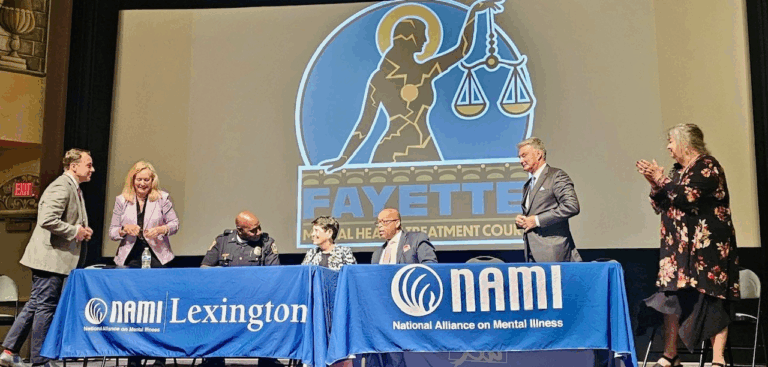The inspiration and legacy of Martin Luther King are so daunting that it often eclipses the truth of the profound messages he delivered, making us think we can’t follow his example. That was true for me until I looked more closely at some of his quotes and thought about his influence. There is much to hold on to that can inspire us on a daily basis.
Let me give you some background: Martin Luther King Jr. was a larger-than-life figure to me growing up in Montgomery, Alabama. President Kennedy was shot in 1963, and The Civil Rights Act, which King worked so hard to accomplish, was passed in 1964. In 1965, Dr. King organized the March from Selma to Montgomery to protest the continued lack of change in Alabama’s black voting rights. In 1966, my father was appointed by President Johnson to be a Judge on the 5th Circuit Court of Appeals. As the lower state courts passed groundbreaking legislation related to desegregation per the Civil Rights Act, my father was tasked with ruling on these contested judgments, which he and the 5th Circuit Court were successful in upholding. When Dr. King was assassinated in April 1968, it didn’t take much to connect the dots between all these events. It was a heady time of significant conflict and transformation in the name of social justice.
What I noticed in quotes from Martin Luther King’s speeches is that there are many profound and powerful messages that we can put to regular use. See what you think of these quotes.
“BE A BUSH IF YOU CAN’T BE A TREE. If you can’t be a highway, just be a trail, If you can’t be a sun, be a star. For it isn’t by size that you win or fail. Be the best of whatever you are”
(Speech to students at Barratt Jr. High School in Philadelphia, October 26, 1967)
This is an axiom for my work as a Coach and Therapist, it is the bedrock for the work I do with people in our diversion court, and it is fundamental to the social justice consultation and training I do with cities and states.
We all have opportunities of varying sizes in front of us at any given time. Make the most of what you are doing, and you will make an impact. Just hold on to the idea of being your best, and you can succeed. For more impact, pass that encouraging idea along to your children and colleagues.
“INJUSTICE ANYWHERE IS A THREAT TO JUSTICE EVERYWHERE. We are caught in an inescapable network of mutuality, tied in a single garment of destiny. Whatever affects one directly, affects all indirectly.”
(Letter from Birmingham Jail, April 16, 1963)
The idea that what affects one affects all is a concept that I frequently use. In therapy, it helps people understand how the injustice of abuse, substance use, relationship distress, or work conflict impacts a person’s mental and physical health and how that impact gets passed along to everyone in their life. In our diversion court and social justice consultation, we seek to be advocates for social and personal change rather than staying stuck in the judgmental and adversarial mindset of win or lose, which is often unjustly implemented.
You can uphold this concept by recognizing the impact your words and actions have on everyone around you. It will remind you to be more considerate, fair-minded, and compassionate toward others. It can help you stand up and speak up when you see things that are unjust. Be a force for justice and positive change wherever you are.
“THE TIME IS ALWAYS RIGHT TO DO WHAT IS RIGHT.”
(Commencement address to Oberlin College, 1965)
This simple and clear quote is classic in its clearly articulated truth. Don’t we all need this reminder to stay on the path of what is right?
To put this into use, try asking yourself, in any situation where you have a choice to make, what is the right thing to do? One of the ways I help people decipher between choices is to energetically experience what each option feels like. As you imagine each one, invariably, your body will give you signals that feel heavy or light, negative or positive, conflicted or clear, tight and restricted, or open and receptive. This simple exercise will help illuminate what is best and right.
“WE’VE GOT SOME DIFFICULT DAYS AHEAD. But it really doesn’t matter with me now because I’ve been to the mountaintop…I’ve looked over and I’ve seen the promised land. I may not get there with you. But I want you to know tonight that we as people will get to the promised land.”
(I’ve been to the Mountaintop speech, April 3, 1968)
While this speech was made about the state of our democracy and Dr. King’s vision for equality the day before his assassination, as if he saw his death foreshadowed, the concept holds importance in other ways. It speaks to the power of having your own “mountaintop” vision and holding on to that vision to guide your thoughts and behaviors, especially when you go through difficult times.
One of the most powerful things you can do for yourself is to be clear on the vision you have for different aspects of your life. I liken it to standing at a scenic overpass and looking at a timeline of your life below to get perspective of where you want to go. I call it the “wisdom perspective”. The more your vision is guided by the values and ideals that shape your actions, the more you will be your own best guide to bring in the things you want with the confidence and joy you seek.
As we pause this week to honor the legacy of Dr. Martin Luther King, Jr., consider how some of his great quotes can be an inspiration for you to make changes in your life.
Some of the ones that spoke to me include: “Be the best of whatever you do”, “What affects one indirectly affects everyone”, “The time is always right to do what is right,” and having your own “mountaintop” vision. See if these can help you be the change you seek.
If you would like support to put some of these ideas into action, reach out. My Transformational Coaching and Therapy provides structure to implement them. Go to www.spectrumtransformaion.com and use my Free Consultation link to reach me. I would love to hear from you.
Resources:
Biography.com – 17 Inspiring Martin Luther King Jr. Quotes, published Jan. 28, 2021; The Assassination of Martin Luther King, Jr., published Jan 19, 2021,








